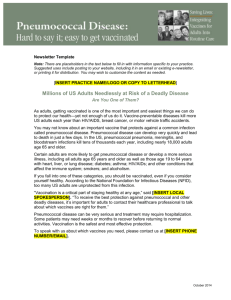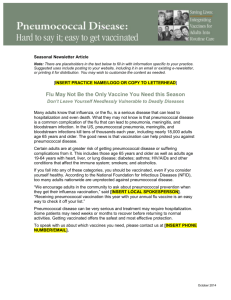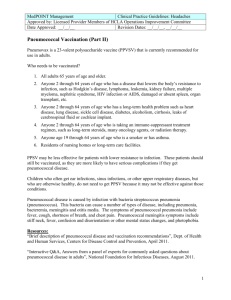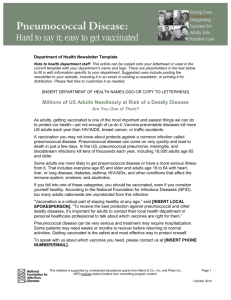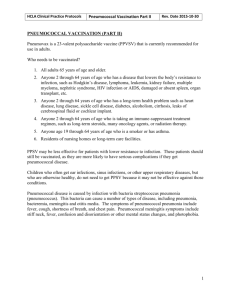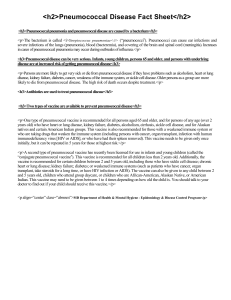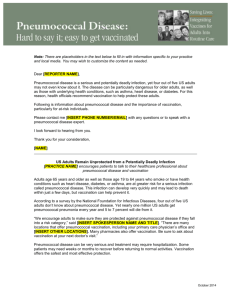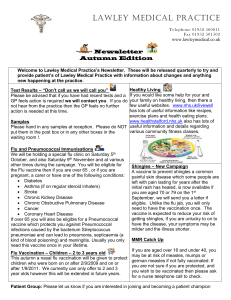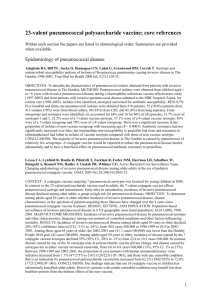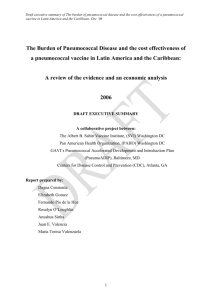Department of Health
advertisement
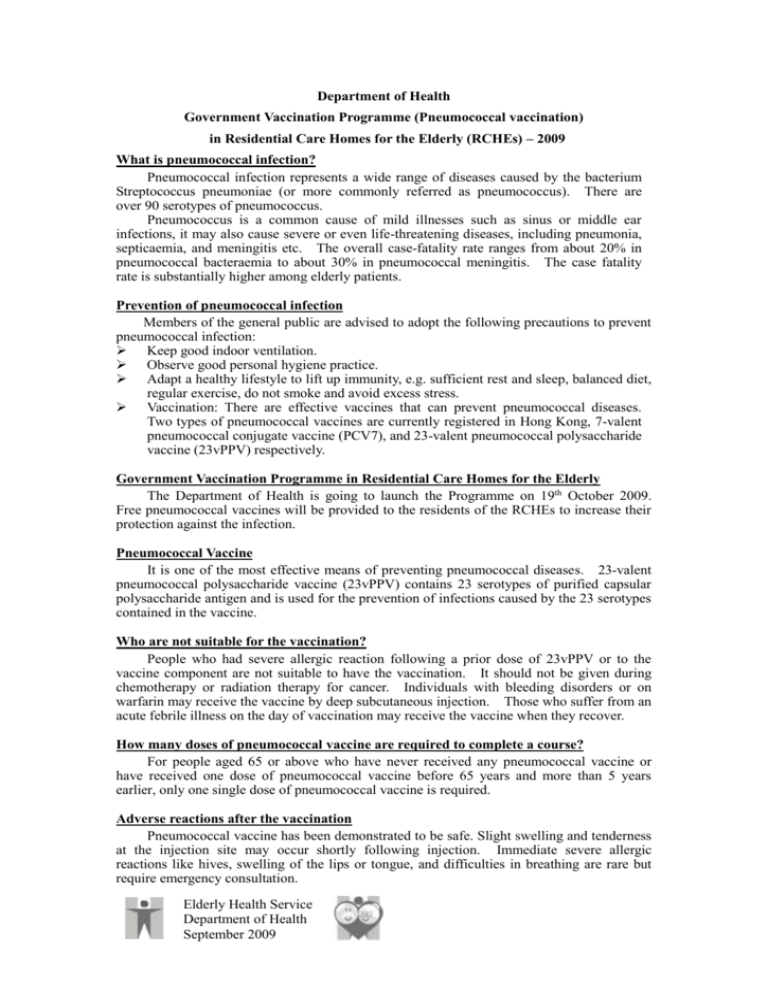
Department of Health Government Vaccination Programme (Pneumococcal vaccination) in Residential Care Homes for the Elderly (RCHEs) – 2009 What is pneumococcal infection? Pneumococcal infection represents a wide range of diseases caused by the bacterium Streptococcus pneumoniae (or more commonly referred as pneumococcus). There are over 90 serotypes of pneumococcus. Pneumococcus is a common cause of mild illnesses such as sinus or middle ear infections, it may also cause severe or even life-threatening diseases, including pneumonia, septicaemia, and meningitis etc. The overall case-fatality rate ranges from about 20% in pneumococcal bacteraemia to about 30% in pneumococcal meningitis. The case fatality rate is substantially higher among elderly patients. Prevention of pneumococcal infection Members of the general public are advised to adopt the following precautions to prevent pneumococcal infection: Keep good indoor ventilation. Observe good personal hygiene practice. Adapt a healthy lifestyle to lift up immunity, e.g. sufficient rest and sleep, balanced diet, regular exercise, do not smoke and avoid excess stress. Vaccination: There are effective vaccines that can prevent pneumococcal diseases. Two types of pneumococcal vaccines are currently registered in Hong Kong, 7-valent pneumococcal conjugate vaccine (PCV7), and 23-valent pneumococcal polysaccharide vaccine (23vPPV) respectively. Government Vaccination Programme in Residential Care Homes for the Elderly The Department of Health is going to launch the Programme on 19th October 2009. Free pneumococcal vaccines will be provided to the residents of the RCHEs to increase their protection against the infection. Pneumococcal Vaccine It is one of the most effective means of preventing pneumococcal diseases. 23-valent pneumococcal polysaccharide vaccine (23vPPV) contains 23 serotypes of purified capsular polysaccharide antigen and is used for the prevention of infections caused by the 23 serotypes contained in the vaccine. Who are not suitable for the vaccination? People who had severe allergic reaction following a prior dose of 23vPPV or to the vaccine component are not suitable to have the vaccination. It should not be given during chemotherapy or radiation therapy for cancer. Individuals with bleeding disorders or on warfarin may receive the vaccine by deep subcutaneous injection. Those who suffer from an acute febrile illness on the day of vaccination may receive the vaccine when they recover. How many doses of pneumococcal vaccine are required to complete a course? For people aged 65 or above who have never received any pneumococcal vaccine or have received one dose of pneumococcal vaccine before 65 years and more than 5 years earlier, only one single dose of pneumococcal vaccine is required. Adverse reactions after the vaccination Pneumococcal vaccine has been demonstrated to be safe. Slight swelling and tenderness at the injection site may occur shortly following injection. Immediate severe allergic reactions like hives, swelling of the lips or tongue, and difficulties in breathing are rare but require emergency consultation. Elderly Health Service Department of Health September 2009
